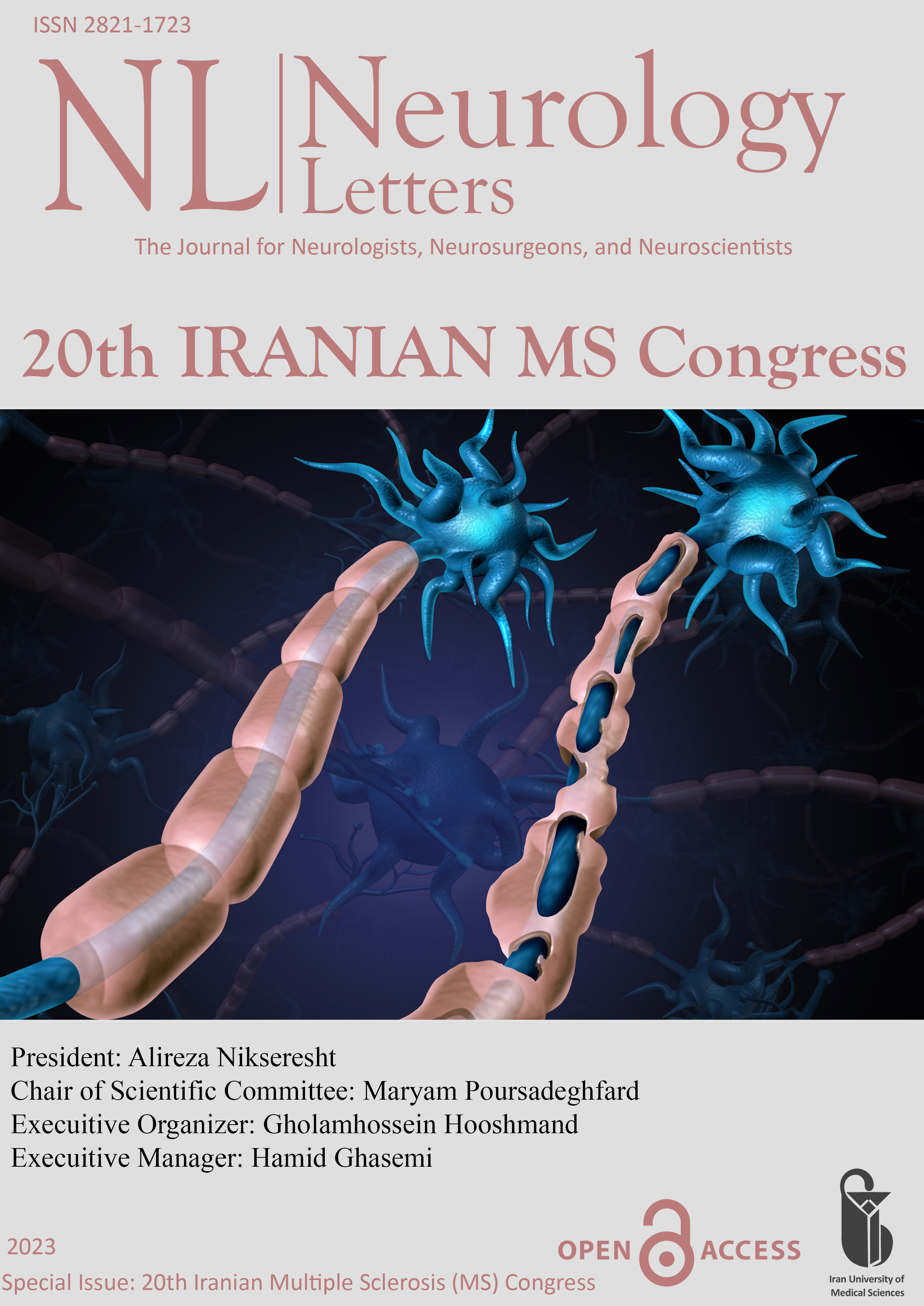Personality traits of patients with multiple sclerosis and their correlation with anxiety and depression levels: A cross-sectional case-control study (PP-28)
Document Type : Poster Presentation
Author
.
Abstract
Introduction: Multiple sclerosis is a chronic demyelinating disease of the central nervous system that can cause severe disability and impair the quality of life (QoL).
Methods: In the current cross-sectional, case–control study, we investigated personality traits, anxiety and depression levels, in 101 patients in the case group and 202 individuals as a control group. The personality traits of the participants were collected via the Neuroticism-Extraversion-Openness Five-Factor Inventory (NEO-FFI) questionnaire. We evaluated the level of anxiety and depression based on the Hospital Anxiety and Depression Scale questionnaire.
Results: Our study showed in patients with disease duration above 1 year, the rates of agreement (29.78), anxiety (8.83), and depression level (6.39) were significantly higher than the control group (27.19, 6.47, and 4.97, respectively). Although patients with disease duration below 1 year showed a higher level of agreement and conscientiousness (29.65 and 34.35, respectively) than controls (26.6 and 30.86, respectively). The level of anxiety and depression in patients with a disability index above 4.5 was significantly higher than patients with a disability index below 1. Patients with a disability index below 1 showed a higher rate of extraversion and agreement and conscientiousness (31.47, 31.53, and 35.07, respectively) than controls (25.5, 26.23, and 3033, respectively). In addition, patients with a disability index above 4.5 showed a higher level of agreement (35.64), conscientiousness (35.5), anxiety (9.64), and depression (7.5) than controls (25.96, 30.71, 6.96, and 4.71, respectively).
Conclusions: In conclusion, anxiety and depression levels were much higher among MS patients compared with controls and the severity of these conditions correlate with the score of the disability index. Therefore, a complete comprehension of these conditions by the neurologist could be vital in improving patients’ QoL and increasing compliance and adherence to pharmacological therapy.
Keywords
 Neurology Letters
Neurology Letters
